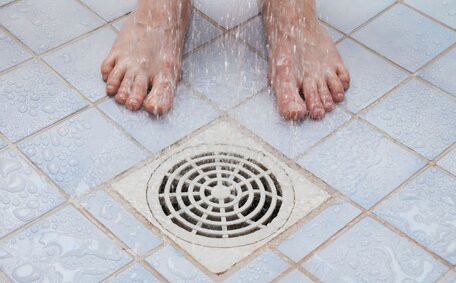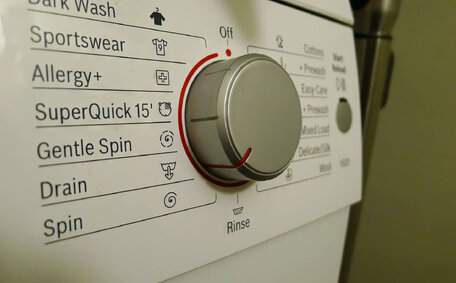
Baking Soda & Vinegar for Cleaning
Using baking soda & vinegar separately for cleaning is very effective; but mixing them dilutes their cleaning power. Learn how to use them properly.
Read MoreRegularly inspecting your home for signs of water leaks can prevent costly damage. Be thorough in examining key areas where leaks often occur:
- Check for leaks by inspecting sinks, showers, tubs, and toilets for drips or moisture, and take note if your toilet runs continuously, as this signals water waste.
- Examine walls, floors, and ceilings for dampness or discolouration that could reveal concealed leaks.
- Monitor your water bill for unexpected hikes that might indicate unaddressed leaks.
- Check under sinks for signs of dampness or water pooling to catch and promptly find water leak your plumbing might be discreetly harbouring before it heightens.
- Listen for the sound of dripping taps. Even minor leaks can lead to significant water and financial loss over time.
- Inspect toilet cisterns and washing machine hoses for leaks, corrosion, or signs of moisture.
- Examine your hot water system, including the heater and pipes, for leaks or damage to maintain the system’s lifespan. Ensure that weep holes at the heater’s base are clear to allow for proper drainage.
- Listen for abnormal gurgling noises, which could point to leaks in pipes or the gas heater, requiring urgent attention.
- Check irrigation systems, garden taps, and outdoor pipes for any signs of leaks or corrosion, and take immediate action if any are found.
- Examine the soil around your house foundations and utility lines for unusual dampness or mud, which could indicate an underground water leak.
Maintaining alertness and understanding how detect water leaks through regular check-ups and promptly addressing concerns can safeguard against expensive water damage to your property. Should a potential plumbing leak concern you, please call us for skilled leak detection and repair services for a swift resolution.
Detecting leaks through vigilant water use monitoring and consistent meter readings is essential to identify plumbing irregularities. Here are steps to troubleshoot water leaks using your water meter readings:
Accurately reading your water meter allows you to monitor water use and detect leaks early. Regularly read your meter every 1-2 months to identify any unusual patterns, and if you suspect a leak, do not hesitate to contact us.
A water metre leak test is a simple process that can help identify leaks on your property. Here are the steps to conduct a test using your water metre:
Significant, unexpected variations in meter readings, when no water should be used, suggest potential leaks that could damage your home. Faster movement of the meter dial or leak indicator typically means a larger leak.
This evaluation, which is why it’s instrumental to detect sly underground water leaks, offers clarity as to which issues surface within your property’s comprehensive plumbing network. This test, carried out routinely, is crucial to pinpoint where leak incidents are happening; we recommend doing it bi-monthly. Should suspicions about an issue arise, please call us, call us immediately, ensuring swift identification and rectification to prevent grave damage.
Specialty leak detection tools can identify water pooling under structures, revealing hidden leaks and water pressure anomalies. Handheld moisture meters measure density differences to detect excess moisture behind surfaces.
Larger homes, commercial buildings, or complex systems often require professional leak detection services, which use advanced tools like ground microphones, gas tracers, and thermal cameras to identify hidden plumbing problems.
Thermal cameras can precisely locate leaks in underground pipes, potentially avoiding unnecessary excavation.
If you suspect a hidden leak, consult with our professional technicians. Our advanced equipment and expertise guarantee quick leak detection with minimal disruption to your property.
While some minor leaks can potentially be repaired through DIY methods, there are many situations where it is best to hire a professional plumber for leak detection and repair.
A licensed, experienced plumber can also use their know-how to check leaks of all kinds in water leakage, guaranteeing proper rectification. In such scenarios, it is highly recommended to connect with a skilled plumber:
Our team was exceedingly skilled in employing their licensed expertise, supported by comprehensively insured plumbers equipped with advanced leak detection tools. We can uncover water leaks swiftly and methodically, inside outside your residential confines.
Our professional capability spans compliant repairs for some leaks, deftly utilising leak detectors for issues inside and outside your habitation, procuring all needed components for refurbishment inside and outside your premises. Our technicians, who were very adept in their roles, will ensure your leak is rectified properly on the first attempt, all the while reducing property damage.
For expert leak detection and surefire repairs, Contact us at 1300 349 338 or [email protected] for a consultation.
Implementing regular preventative plumbing maintenance helps avoid leaks and expensive repairs down the track. Here are some key tips:
Annual cleaning of drains and inspection of water supply lines by a licensed plumber can prevent significant problems.
Review water bills monthly and conduct regular meter readings to spot anomalies that may suggest leaks.
Fix small leaks promptly to conserve water and prevent major issues. A simple toilet leak test using food colouring can expose significant daily water waste.
Swap old plumbing and joints with new hot water-conserving fixtures to avert leakages.
Insulating exposed water pipes reduces freezing and bursting risks during cold weather.
At Lilyfield Plumbing, we provide scheduled maintenance where we can check inspections and repairs to maintain your plumbing system’s efficiency. Timely repairs and proactive monitoring help avert future extensive system failures. Contact us to book annual check-ups and stay leak-free.
Using baking soda & vinegar separately for cleaning is very effective; but mixing them dilutes their cleaning power. Learn how to use them properly.
Read MoreBlocked drains are usually caused by buildup of hair, grease, debris and more in your pipes. Fix the problem with professional drain unblocking services to get your drains flowing freely again. Contact us for affordable drain unblocking.
Read MoreWhen you suspect a gas leak or damaged gas line, contact a licensed gas fitter immediately to locate and repair it. A gas line repair involves sealing leaks, replacing corroded or damaged pipes and testing all connections for safety before restoring gas supply.
Read MoreLilyfield, 2040 NSW
We will call back as soon as possible.




